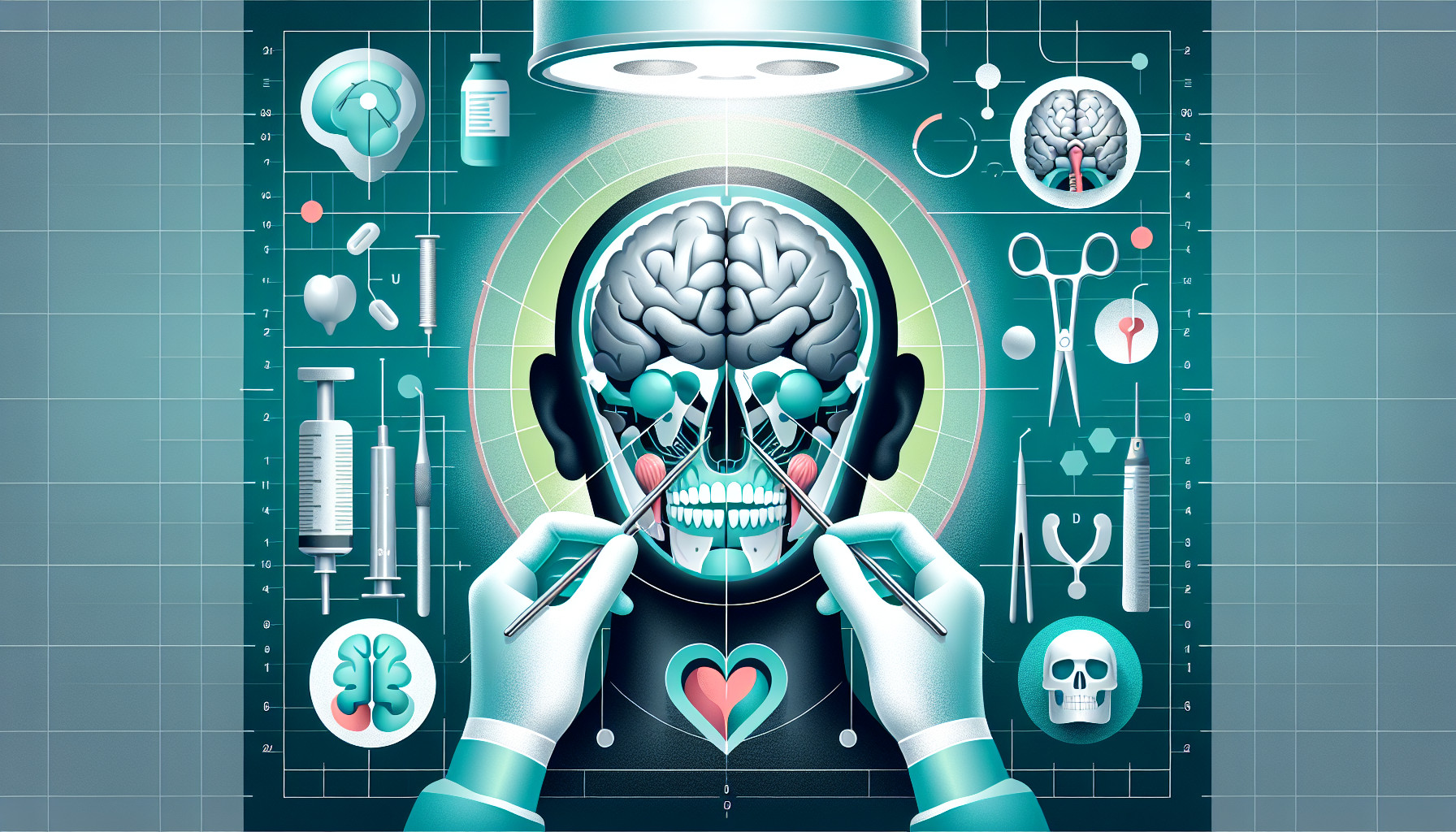Our Summary
This research paper is about a phenomenon called hedonic adaptation, which is the idea that our mood and overall sense of well-being tends to return to a stable level, no matter what positive or negative changes happen in our lives. In this case, the researchers are focusing on people who have a type of jaw surgery called orthognathic surgery – often done to improve appearance as well as oral function.
The researchers say that while people might feel happier and more satisfied with life immediately after the surgery, over time their mood and satisfaction will likely return to what it was before. This is because of hedonic adaptation.
The paper discusses the factors that can speed up or slow down this process of returning to ’normal’. The researchers argue that if patients are aware of this process, they could potentially take steps to maintain the positive changes in mood and life satisfaction that they experience after surgery. However, the overall conclusion is that we shouldn’t expect this type of surgery to lead to long-term improvements in psychological well-being.
FAQs
- What is hedonic adaptation and how does it relate to orthognathic surgery?
- Does orthognathic surgery lead to long-term improvements in psychological well-being?
- What factors can speed up or slow down the process of hedonic adaptation after surgery?
Doctor’s Tip
A helpful tip a doctor might give a patient about jaw surgery is to be prepared for the possibility of experiencing fluctuations in mood and satisfaction post-surgery due to hedonic adaptation. They might advise the patient to focus on maintaining a positive outlook and seeking support if needed to help navigate these changes. Additionally, the doctor may recommend engaging in self-care practices and activities that bring joy and fulfillment to help sustain any initial improvements in well-being.
Suitable For
Patients who are typically recommended jaw surgery, specifically orthognathic surgery, include:
- Patients with severe bite problems (malocclusions) that cannot be corrected with orthodontic treatment alone.
- Patients with facial asymmetry or disproportionate facial features.
- Patients with difficulty chewing, swallowing, or speaking due to jaw misalignment.
- Patients with temporomandibular joint (TMJ) disorders.
- Patients with obstructive sleep apnea or other breathing issues related to jaw position.
- Patients with a protruding or retruded jaw that affects their facial aesthetics.
It is important for patients considering jaw surgery to undergo a thorough evaluation by an oral surgeon and orthodontist to determine if they are suitable candidates for the procedure. Additionally, patients should have realistic expectations about the potential outcomes of surgery and understand that while physical improvements can be achieved, long-term changes in mood and life satisfaction may be limited due to hedonic adaptation.
Timeline
Before jaw surgery:
- Patient experiences dissatisfaction with their appearance or oral function
- Patient consults with a surgeon and undergoes pre-operative assessments
- Patient prepares for surgery, including making necessary arrangements and discussing expectations with the surgeon
- Patient undergoes orthognathic surgery to correct jaw abnormalities
After jaw surgery:
- Initially, patient may experience relief and satisfaction with the improved appearance and function of their jaw
- Patient goes through a period of recovery, which may include pain, swelling, and difficulty eating
- Patient attends follow-up appointments with the surgeon to monitor healing and adjust treatment as needed
- Over time, patient’s mood and overall sense of well-being may return to pre-surgery levels due to hedonic adaptation
- Patient may need to engage in self-care practices, such as therapy or mindfulness, to maintain the positive changes in mood and life satisfaction post-surgery
Overall, the patient’s experience before and after jaw surgery involves a mix of physical and emotional challenges, with the potential for short-term improvements in satisfaction that may not be sustained in the long term due to hedonic adaptation.
What to Ask Your Doctor
- What are the potential risks and complications associated with orthognathic surgery?
- How long is the recovery process and what can I expect in terms of pain and discomfort?
- How will my appearance and oral function be impacted by the surgery?
- Will I need to follow a specific diet or make any lifestyle changes after the surgery?
- How long will it take for me to see the final results of the surgery?
- Are there any alternative treatments or procedures that I should consider before undergoing jaw surgery?
- How can I best prepare myself mentally and emotionally for the surgery and the potential changes in mood and well-being that may occur?
- Are there any support groups or resources available for individuals who have undergone orthognathic surgery?
- What can I do to maintain the positive changes in mood and life satisfaction that I may experience after the surgery?
- How often will I need follow-up appointments after the surgery and what signs should I look out for that may indicate complications or issues with the surgery?
Reference
Authors: Ashton-James CE, Chemke-Dreyfus A. Journal: Eur J Oral Sci. 2019 Jun;127(3):189-195. doi: 10.1111/eos.12612. Epub 2019 Mar 14. PMID: 30869174
